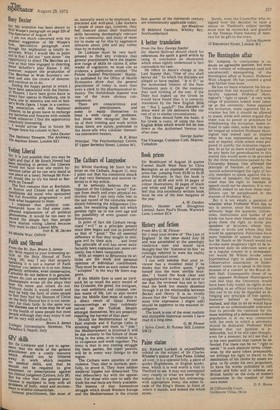GPs' skills
Sin Dr Linklater and I are in agreement that the skills of the general Practitioner are a costly resource Which should not be frittered away in work which requires 00 Medical skills, and that he Should not be required to give treatment or prescriptions against his clinical judgment (Letters, July 28). But his view that the general practitioner is equipped to help with all Problems of body, mind and environment is wishful romanticism.
General practitioners, like most of us, naturally want to be employed, appreciated and well-paid. Like dockers a couple of years ago, however, they feel insecure about their traditional skills becoming decreasingly relevant to the community, and many of them try to make up for this by aggressive demands about jobs and pay rather than by re-training.
Dr Linklater must be very hardpressed to find any evidence that general practitioners have the impressive range of skills he claims if, after weeks of cogitation, he must cite as evidence a publication entitled ' The Future General Practitioner.' Statistics published by the Office of Health Economics show that the general practitioner of today is more than even a clerk to the pharmaceutical industry. The thalidomide disaster was one of the more obvious consequences.
There are conscientious and
dedicated practitioners, and some to equip themselves to `treat a wide range of problems, but those who recognise. the limits of their training and work within these limits are surely ,preferable to the know-alls who consider themselves omniscient healers.
R. K. Brian Principal, The Psychotherapy Centre, 67 Upper' Berkeley Street, London WI,


































 Previous page
Previous page